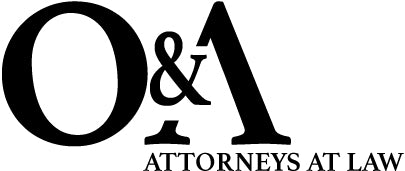
Tesla Faces Multiple Lawsuits Over Autopilot-Related Accidents
Tesla is under intense scrutiny as it faces a wave of lawsuits related to accidents allegedly involving its Autopilot feature, posing financial risks and potential reputational harm for the company. For years, Tesla CEO Elon Musk has promised an autonomous car was imminent—a prospect that has fueled Tesla's market value—but despite significant advancements, fully autonomous driving remains unachieved.
Tesla’s Driver-Assist Technology and its Limitations
Tesla’s Autopilot system, designed to match speed with surrounding traffic and stay within lanes on highways, provides a suite of driver-assist features at escalating price points. For $6,000, the “Enhanced Autopilot” package includes lane-changing and self-parking capabilities, while the $12,000 Full Self-Driving (FSD) option enables more advanced features like city street navigation and stoplight recognition. However, Tesla makes it clear in its materials that neither package makes the vehicle fully autonomous, and drivers must remain “fully attentive” and ready to take control at any time.
With Tesla offering a one-month free trial of FSD to U.S. customers, Musk aims to give more drivers firsthand experience with the technology. Additionally, Tesla is reportedly planning to unveil a self-driving robotaxi on August 8, 2024, although a planned affordable vehicle was scrapped to prioritize the robotaxi initiative. This ambitious focus on autonomous technology is integral to Tesla’s long-term vision but is now intertwined with growing legal challenges.
Legal Challenges and Potential Financial Impacts
The lawsuits against Tesla, largely focused on crashes allegedly involving Autopilot or FSD, highlight concerns about Tesla's driver-assistance technology and its potential risks. The company risks significant monetary judgments and, as Sam Abuelsamid from Guidehouse Insights points out, “The last thing [Tesla] would want right now is a public trial showing all of the problems with Full Self-Driving.” This scrutiny comes as Tesla contends with wavering sales and controversies around Musk’s public statements, which have at times impacted Tesla's reputation.
Steps to Take If You Have Experienced an Autopilot-Related Accident
If you have been in an accident where Autopilot or FSD may have been involved, it’s essential to:
- Document the Incident: Gather all available data, including dashcam footage, location data, and Autopilot activity at the time of the incident.
- Contact an Attorney: Seek legal advice to determine the best approach for pursuing compensation and understanding your rights.
- Report the Incident: Notify Tesla and consider reporting the issue to the National Highway Traffic Safety Administration (NHTSA), as this helps regulatory bodies monitor and evaluate the performance of these systems.
Seeking Legal Assistance
As the landscape around autonomous vehicle technology evolves, so too do the legal questions surrounding driver liability, manufacturer responsibility, and the role of automated driving systems in ensuring public safety. If you or someone you know has been affected by an incident involving Tesla’s driver-assist features, you may want to explore your legal options.
Contact Oshan & Associates
The law firm of Oshan & Associates specializes in cases involving emerging technology. Contact us at (206) 335-3880 for a consultation to discuss your options.
Also in Car Accidents

Douglas County Car Crash

Cowlitz County Hero Rescues Children Trapped in Car After Tragic Crash

